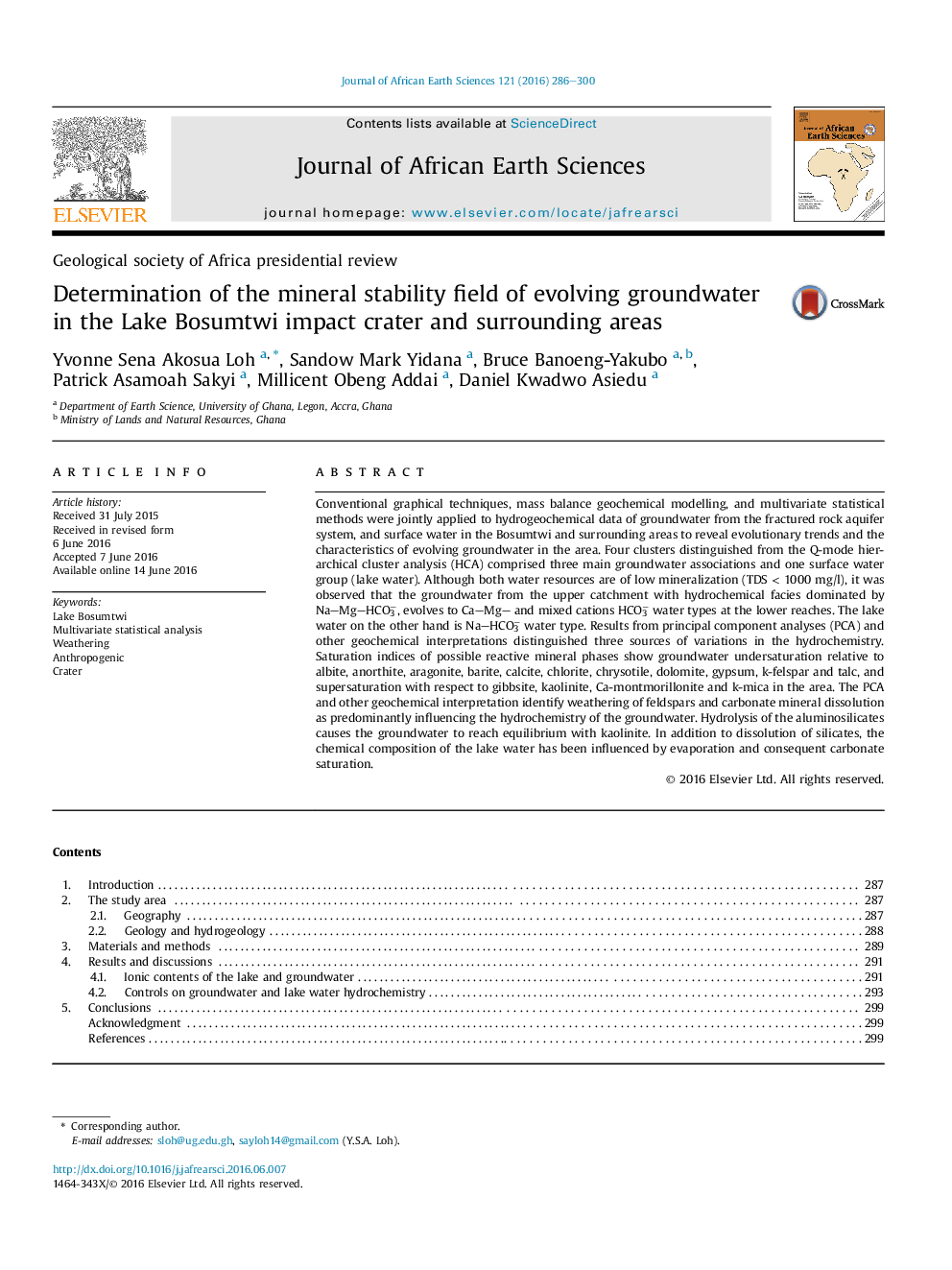| Article ID | Journal | Published Year | Pages | File Type |
|---|---|---|---|---|
| 4728256 | Journal of African Earth Sciences | 2016 | 15 Pages |
•Lake Bosumtwi is a natural meteorite impact crater lake situated in the Ashanti Region of Ghana.•Variations in the hydrochemistry is controlled by silicate weathering, carbonate weathering and anthropogenic activities.•Hydrolysis of the aluminosilicates causes the groundwater to reach with kaolinite.
Conventional graphical techniques, mass balance geochemical modelling, and multivariate statistical methods were jointly applied to hydrogeochemical data of groundwater from the fractured rock aquifer system, and surface water in the Bosumtwi and surrounding areas to reveal evolutionary trends and the characteristics of evolving groundwater in the area. Four clusters distinguished from the Q-mode hierarchical cluster analysis (HCA) comprised three main groundwater associations and one surface water group (lake water). Although both water resources are of low mineralization (TDS < 1000 mg/l), it was observed that the groundwater from the upper catchment with hydrochemical facies dominated by NaMgHCO3−, evolves to CaMg and mixed cations HCO3− water types at the lower reaches. The lake water on the other hand is NaHCO3− water type. Results from principal component analyses (PCA) and other geochemical interpretations distinguished three sources of variations in the hydrochemistry. Saturation indices of possible reactive mineral phases show groundwater undersaturation relative to albite, anorthite, aragonite, barite, calcite, chlorite, chrysotile, dolomite, gypsum, k-felspar and talc, and supersaturation with respect to gibbsite, kaolinite, Ca-montmorillonite and k-mica in the area. The PCA and other geochemical interpretation identify weathering of feldspars and carbonate mineral dissolution as predominantly influencing the hydrochemistry of the groundwater. Hydrolysis of the aluminosilicates causes the groundwater to reach equilibrium with kaolinite. In addition to dissolution of silicates, the chemical composition of the lake water has been influenced by evaporation and consequent carbonate saturation.
